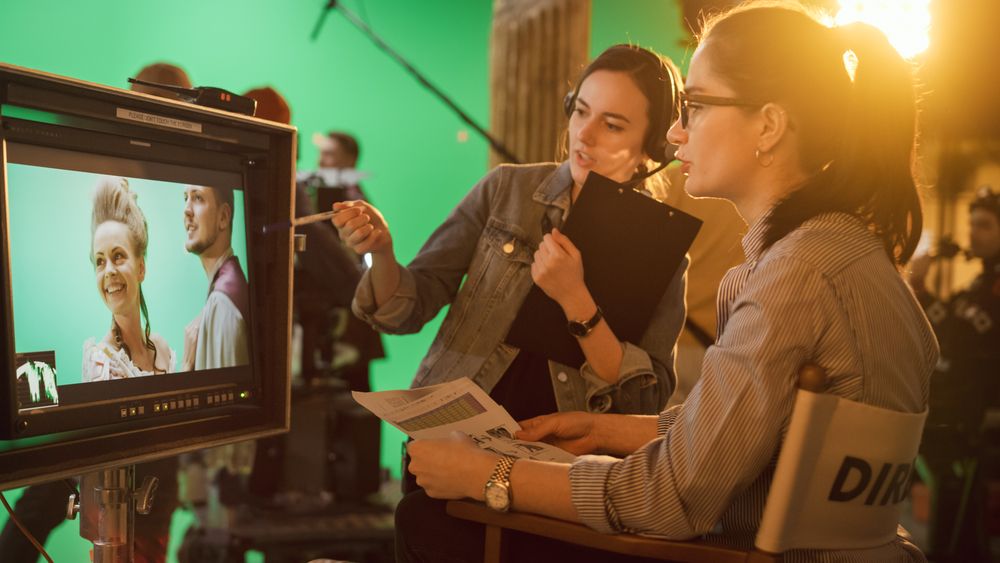This International Women’s Day, Let’s Celebrate Women In Films
According to the Library of Congress, it began as a national celebration in 1981, when Congress passed legislation authorising and requesting the president to proclaim the week beginning March 7, 1982 as “Women’s History Week.” A time to recognise women’s significant contributions to history and notable accomplishments in a variety of fields. During the silent film era, female filmmakers were plentiful. Now is the time for the silent film era’s female trailblazers, as well as those who followed in their footsteps, to ensure that they are no longer forgotten in the history of cinema and that they are, in fact, Talked About.
Alice Guy-Blaché

Alice Guy Blaché is thought to be the first person to direct a narrative film, male or female. In 1910, she established her own American studio, where she directed over 20 films. She made over 1,000 short and silent films during her career, including comedies, westerns, and dramas, many of which featured women. Her film The Consequences Of Feminism, released in 1906, depicted a world in which gender roles are reversed. In 1912, she directed the film A Fool And His Money, which featured an all-African-American cast for the first time.
Uma Thurman
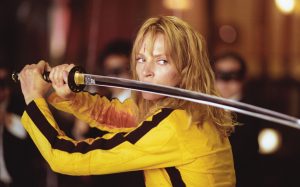
No one needs to remind Uma Thurman about the exemplary power of her work in Quentin Tarantino’s “Kill Bill” films, often hailed as the best example of her work in feminist leanings. “Women would come up to me and they would say that somehow or other – they’d share a little bit — that that film helped them in their lives, whether they were feeling oppressed or struggling or had a bad boyfriend or felt badly about themselves, that that film released in them some survival energy that was helpful, and that is probably one of the most gratifying things that I have ever experienced in response to a piece of art,” she said in an interview.
Viola Davis
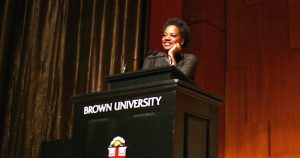
Viola Davis is one of the most talented actresses of our generation. She simply cannot be beaten in terms of range and versatility. She has also won an Academy Award, a Primetime Emmy Award, and two Tony Awards, making her one of the most decorated Black female actors of all time. In “Ma Rainey’s Black Bottom,” Davis plays a woman who recognises her worth and does not apologise for it, which was practically unheard of for a Black woman in 1927. Viola’s entire Twitter and Instagram platform is dedicated to elevating Black voices. Her Twitter account is dedicated to congratulating Naomi Osaka on her US Open victory and wishing her friends, such as Taraji P Henson, a happy birthday.
Sofia Coppola

Sofia Coppola has won numerous awards, including an Academy Award and two Golden Globes, and was the first American woman to be nominated for Best Director at the Academy Awards in 2004. Her work, ranging from The Virgin Suicides to The Bling Ring, creates new spaces for female subjectivity that embraces rather than rejects femininity. Her films have a post-feminist aesthetic to them, with long, intimate scenes with female characters. These characters live in luminous worlds of girlish adornments, light, and sparkle, but they also find homes in unusual places like hotels, swimming pools, palaces, and strip clubs, defying stereotypes and the mundane.
Angelina Jolie

Angelina Jolie is one of the few celebrities who has used her celebrity status to empower others. The actress has won an Oscar as well as the Jean Hersholt Humanitarian Award. As a Special Envoy for the United Nations High Commissioner for Refugees, she has uplifted and advocated for individuals and is also a vocal advocate for breast cancer awareness. She feels that as long as nations prioritise almost every other issue over women’s equality, rights, and participation, the world will remain trapped in a cycle of violence and conflict.
Deepa Mehta
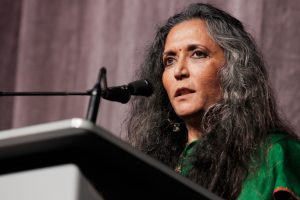
Deepa Mehta is a renowned director, filmmaker, and screenwriter whose work defies stereotypes, gender roles, and traditions. Her film Water, which is part of her celebrated Elemental Trilogy: Earth, Fire, and Water, was nominated for an Academy Award. Throughout her illustrious film career, Deepa Mehta has been a vocal advocate for underserved women. She has joined UN-recognized NGO Sambhali Trust as the honorary International Patron, as a natural continuation of her lifelong commitment to advancing global gender equality. Deepa is a hero and a role model for young Indian girls. Her success as an Indian woman demonstrates to them that they can succeed in fields other than traditional ones.
Natalie Portman
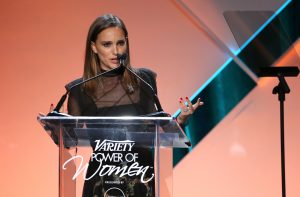
Natalie Portman is a vegan, a feminist and an Academy Award winner. Her famous speech at the Los Angeles Forum is a reminder of that – “Dairy and eggs don’t just come from cows and chickens, they come from female cows and female chickens. We’re exploiting female bodies and abusing the magic of female animals to create eggs and milk.” While presenting the award at the 2018 Golden Globes, actress Natalie Portman famously called out the HFPA, saying, “And here are the all-male nominees.” As a director, Portman understands the challenges that women face in the industry, and her sartorial salute to her female colleagues was more than just a statement—it was a statement of solidarity.
Sharmeen Obaid-Chinoy

Sharmeen Obaid-Chinoy is a documentary filmmaker who raises the voices of Pakistani women while exposing injustices. A Journey of a Thousand Miles: Peacekeepers, directed by Obaid-Chinoy, stars three Muslim female police officers who were deployed to Haiti after the 2010 earthquake. Saving Face is a documentary that follows plastic surgeon Dr. Mohammad Jawad and his initiative to aid victims of acid attacks in Pakistan. She won the Academy Award for Best Documentary Short for Saving Face. She is the first Pakistani woman to receive two Academy Awards.
Emma Watson

She was named UN Women Goodwill Ambassador in 2014. The HeForShe campaign, which encourages men to advocate for gender equality, was also launched by the actress. Watson defines feminism as “the belief that men and women should have equal rights and opportunities,” and claims that the negative perception of feminism must be dispelled. She spearheaded a project last year to rename the London Underground’s 270 stops after great women and non-binary people in British history.
Chloe Zhao

For her film “Nomadland,” director Chloe Zhao has won the Golden Globe for Best Director, making her only the second woman to do so in the 78-year history of the award show. Zhao’s accolades didn’t end there, as she became the first Asian woman to win the award as well. Zhao’s Golden Globe win has been hailed as a “huge inspiration for young Asian girls” and a “win for women everywhere” by many people around the world.
